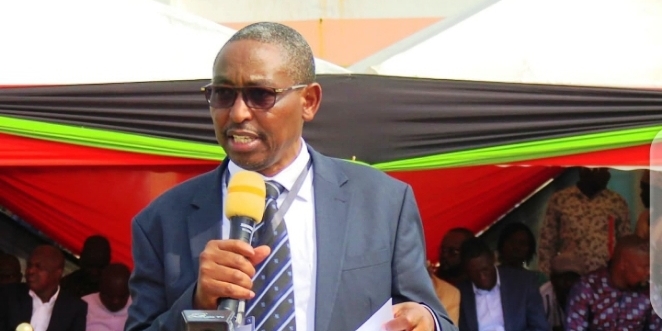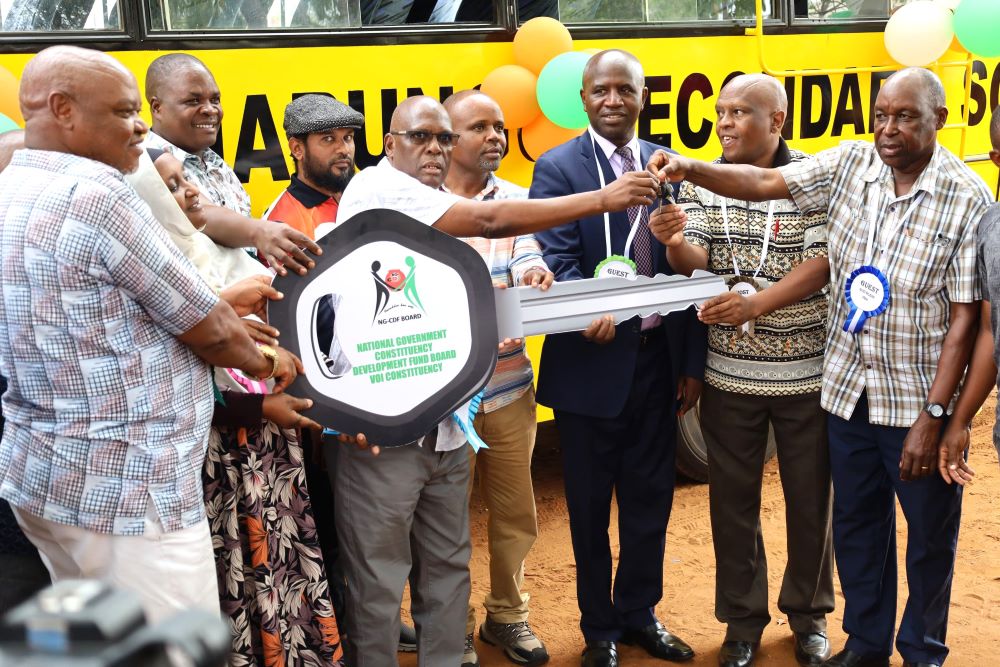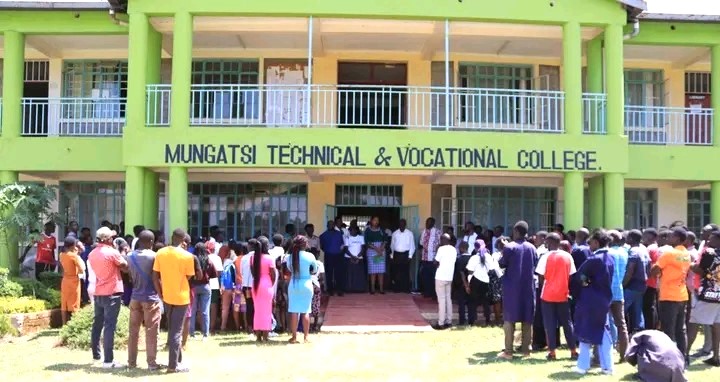The Principal Secretary (PS) for Education, Prof. (Amb.) Julius Bitok has maintained that the implementation of Competency-Based Education (CBE) is on the right track, equipping learners with the skills, knowledge, and values necessary for the 21st century.
In a speech read on his behalf by Nyanza Regional Director Lawrence Karuntimi during the Rarieda Constituency Education Day held at Chianda High School, Siaya County, Bitok noted that, despite challenges, the new CBE curriculum is now stabilising the education system.
“As a ministry, our Commitment towards competency-based education is unwavering. Since its inception, the Ministry for Education has transitioned over 1.2 million learners into Junior Secondary schools, “said Prof. Bitok.
The PS noted that over 14,000 new classrooms have been constructed, and work is in progress to put up 16,000 modern science laboratory infrastructures nationwide.
In addition, he revealed that the ministry has increased its Human resources, and so far, 56,000 teachers have been recruited on permanent terms, with some 20,000 interns also being absorbed.
“We continue to build the capacity of 124,000 primary school teachers and a further 7,000 secondary school teachers for senior Schools by retooling them in CBE. As we prepare for the rollout of grade 10 in January 2026, we have finalised the senior school curriculum and launched an automated learner placement system for senior school pathways, “said Prof. Bitok.
“We are now in a critical phase of implementing the senior school transition, as grade 9 lapses, we will soon move to grade 10, having completed the exercise of selecting their preferred pathways, subject combination and schools,” he said.
Karuntimi was flanked by KNUT Secretary General Collins Oyuu and Rarieda MP Otiende Amollo, who faulted Treasury CS John Mbadi for slashing Ksh. 5,000 from the capitation fee for each secondary student.
According to Mbadi, the government’s capitation grant—funds sent to schools to cover basic learning costs—will be slashed. Secondary school students will now receive Ksh16,900 per year, down from the current Ksh22,244.
READ ALSO:
Currently, for primary learners, the state provides Ksh1,420 annually. Junior secondary schools currently receive Ksh15,042 per child, and senior secondary schools Ksh22,244.
“Due to constrained fiscal space and other emerging priorities within the education sector, updating these rates might be untenable,” Mbadi said while appearing before the National Assembly’s Budget and Appropriations Committee on 24 July. The government will, however, consider reviewing this rate should revenue performance improve.”
Oyuu asked the MPs to tackle the capitation issue once they resume or else the running of the institutions would be difficult,
“Capitation is an issue that must be addressed in parliament. CS Mbadi had pronounced that we cant go for Sh 22,000 capitation for secondary school and yet the ministry is on our neck and inists that Education is free, so when you reduce what is free, what do you expect heads of institutions to do?”, he wondered.
Oyuu regretted that when heads send learners for fees, they are threatened with interdiction.
“With the competency-based Education it would not be an easy task for teachers. In fact some teachers say that they will opt out for greener pastures after finding teaching very difficult,” he said.
Rarieda Mp Otiende Amolo noted that head teachers are a frustrated lot when it comes to capitation challenges.
“Teachers have lodged complaints that they go through in running schools due to late and I adequate release of capitation,” stated the legislator.
Otiende says teachers have been depending on the NG-CDF bursary to pay up some of the pending bills so the capitation issue must be prioritised in the assembly for discussion.
Kisumu Deputy Governor Mathews Owili asked the Controller of Budget to end the County bursary stalemate and remit funds to counties arguing that the funds will go a long way in releavng the distressed head teachers.
Owili also asked the Ministry of Education to ensure there is a continuous flow of the capitation funds to secondary schools.
By Erick Nyayiera
You can also follow our social media pages on Twitter: Education News KE and Facebook: Education News Newspaper for timely updates.
>>> Click here to stay up-to-date with trending regional stories
>>> Click here to read more informed opinions on the country’s education landscape






